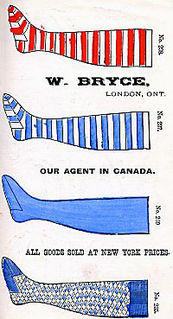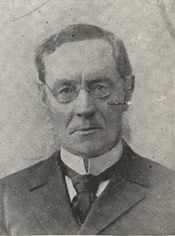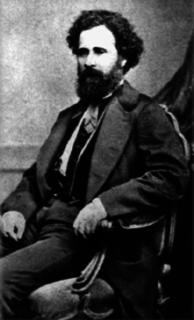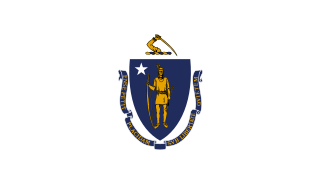
Frank Welch was a Nebraska Republican politician.

The International Association of Professional Base Ball Players was the name for two separate Canadian-American baseball leagues that operated from 1877 through 1880 and also from 1888 until 1890. Some baseball historians consider the International Association the first minor league; others point out that the league was conceived as a rival to the National League, now thought of as the sole major league of the era.
Charles E. Bassett was a lawman and saloon owner in the American Old West in Dodge City. He was one of the founders of the Long Branch Saloon in Dodge City, served as the first sheriff of Ford County, Kansas, as well as city marshal of Dodge City. His deputies included Wyatt Earp and Bat Masterson.

Walbridge Abner Field was an American lawyer, jurist and politician who served as a member of the United States House of Representatives from Massachusetts, and as the Chief Justice of the Massachusetts Supreme Judicial Court. He was born in North Springfield, Vermont on April 26, 1833. He graduated from Dartmouth College in 1855, where he also served as a tutor. He studied law in Boston, Massachusetts and at the Harvard Law School. Field was admitted to the bar and commenced practice in Boston. He served as a member of the City's school committee, and represented wards 5 and 8 on Boston's Common Council.

Addison Henry Laflin was an American politician from New York.

William Everett was born in Watertown, Massachusetts, United States. He was the son of Charlotte Gray Brooks and orator, Massachusetts governor and U.S. Secretary of State Edward Everett, who spoke at Gettysburg, Pennsylvania before President Abraham Lincoln's address on November 19, 1863.

Charles Delano was a U.S. Representative from Massachusetts.

Chester William Chapin was an American businessman and U.S. Representative from Massachusetts.

Joseph Henry O'Neil was a U.S. Representative from Massachusetts.

Rufus Smith Frost was a U.S. Representative from Massachusetts.

Eben Francis Stone was a U.S. Representative from Massachusetts.

Thompson Henry Murch was a nineteenth-century politician, stonecutter, editor, publisher and merchant from Maine. He was among the first trade unionists elected to the United States Congress.
The International Labor Union was a trade union in the northeastern United States from 1878-1887.

The Prince Society or Prince Society for Mutual Publication (1858-1944) in Boston, Massachusetts, published "rare works, in print or manuscript, relating to America." It was named after Thomas Prince, fifth pastor of Old South Church in Boston. Historian Samuel Gardner Drake founded the society because he "had not been made a member of the Massachusetts Historical Society, and he resented it." Officials of the Prince Society included William Sumner Appleton, John Ward Dean, Charles E. Goodspeed, Edmund F. Slafter, John Wingate Thornton, and William Henry Whitmore. It operated from offices in Bromfield Street (ca.1868) and Somerset Street. Around 1920 society members "realized at last that a publication society 'on the mutual principle' had become an anomaly in this day and generation." The society continued for several "years of poise before the final leap into the abyss" in 1944.
Beethoven Hall (1874-1878) was an auditorium in Boston, Massachusetts, that hosted musical performances and other entertainments in the 1870s. It sat on Washington Street, near Boylston Street, in today's Boston Theater District/Chinatown neighborhood. In 1879 the renovated hall re-opened as the Park Theatre. The building survived until 1990, when it was razed.
This is a list of members of the Victorian Legislative Assembly, from the elections of 11 May 1877. Victoria was a British self-governing colony in Australia at the time.

Alexander Hamilton Vinton was first bishop of the Episcopal Diocese of Western Massachusetts from 1902 to 1911.

William R. Walker was an American architect from Providence, Rhode Island, who was later the senior partner of William R. Walker & Son.
Elections to Liverpool Town Council were held on Thursday 1 November 1877. One third of the council seats were up for election, the term of office of each councillor being three years.

The first cabinet of Ion C. Brătianu ruled Romania from 24 July 1876 to 24 November 1878.


















